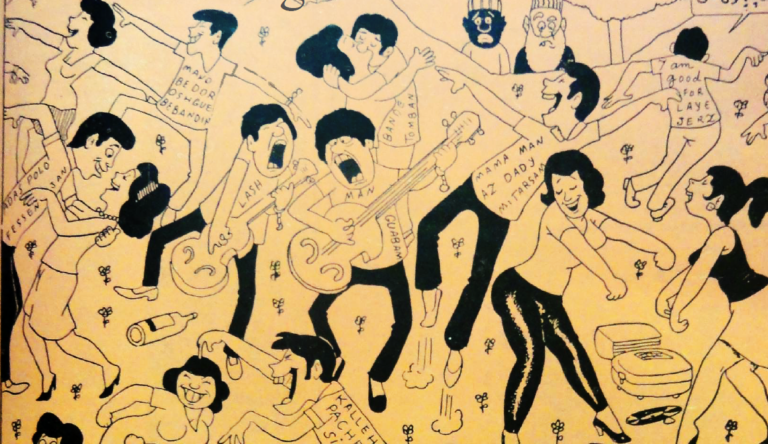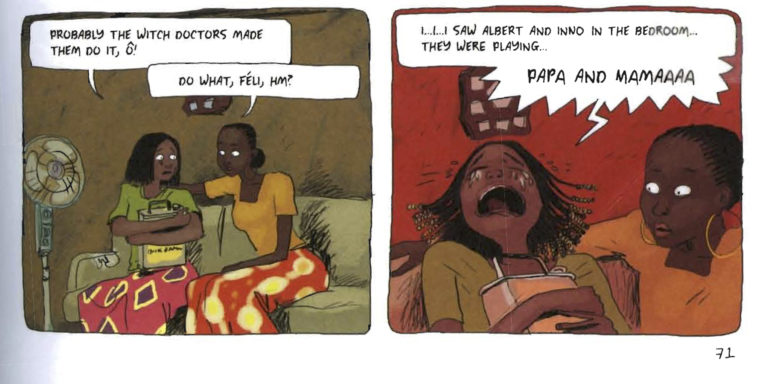This essay explores how a particular medium—the comic—exposes the limitations of conventional narratives about sīyāh bāzī (Persian blackface) and hājī fīrūz (a famous blackface figure). Many commentators disavow the racial connotations of sīyāh bāzī and hājī fīrūz, concocting pseudo-historical genealogies that link the improvisatory tradition and figure to pre-Islamic practices; commentators thus repress the tradition’s obvious resonances with the history of African enslavement in Iran. Through a close reading of a comic strip from a 1960s Persian periodical, I argue that historicism is an inadequate framework for adjudicating sīyāh bāzī’s racial or “nonracial” character. Instead, I suggest that cartoon Blackness is always already racial, since the comic form depends upon a process of simplification that is at the heart of racialization.
Keyword: comics
Minor Miracles: Toward A Theory of Novelty in Aya of Yopougon
This essay undertakes a reparative reading of Aya of Yopougon, a multivolume graphic novel by Marguerite Abouet and Clément Oubrerie. Setting Aya alongside other African comics and prevailing interpretations of African and Diasporic literatures, this interpretation coins the term “novelty” to describe the unique mode of representing subjects, space, and time in the text. This “novelty” situates Aya at the intersection of tendencies in African, European, and North American comics art, and it juxtaposes subtle renditions of everyday life with overdetermined representations of African societies and Africans in Diaspora. The essay also articulates the relevance of novelty for feminist, queer, and postcolonial theories, comics scholarship, and Diaspora Studies.
Review of Speculative Blackness: The Future of Race in Science Fiction by André M. Carrington (University of Minnesota Press)
André Carrington’s ‘Speculative Blackness’ is a novel approach to the consumption of race representation in media. Carrington explores how Blackness is manufactured, consumed, and transformed through the speculative fiction genre across multiple 20th and 21st century mediums. Traditional media of comic books and television shows reveal the marginalized status of Black figures however, these media do not exist in a vacuum. The consumption of speculative fiction is a transformative process for the original content, which consequentially produces amateur media due to a long-established history of fan interaction. Black representation is characterized as the exception, not the rule, in traditional production, but fan consumption reconfigures these notions. Ultimately, Carrington’s work is an innovative dialogue regarding a genre that creates worlds speculating on what could be. Speculative fiction breaks down preexisting notions of our reality and creates worlds with entirely new expectations and interactions. With the creative liberty of the genre, Carrington casts Black representation as a consumed media but also an imaginative effort.


